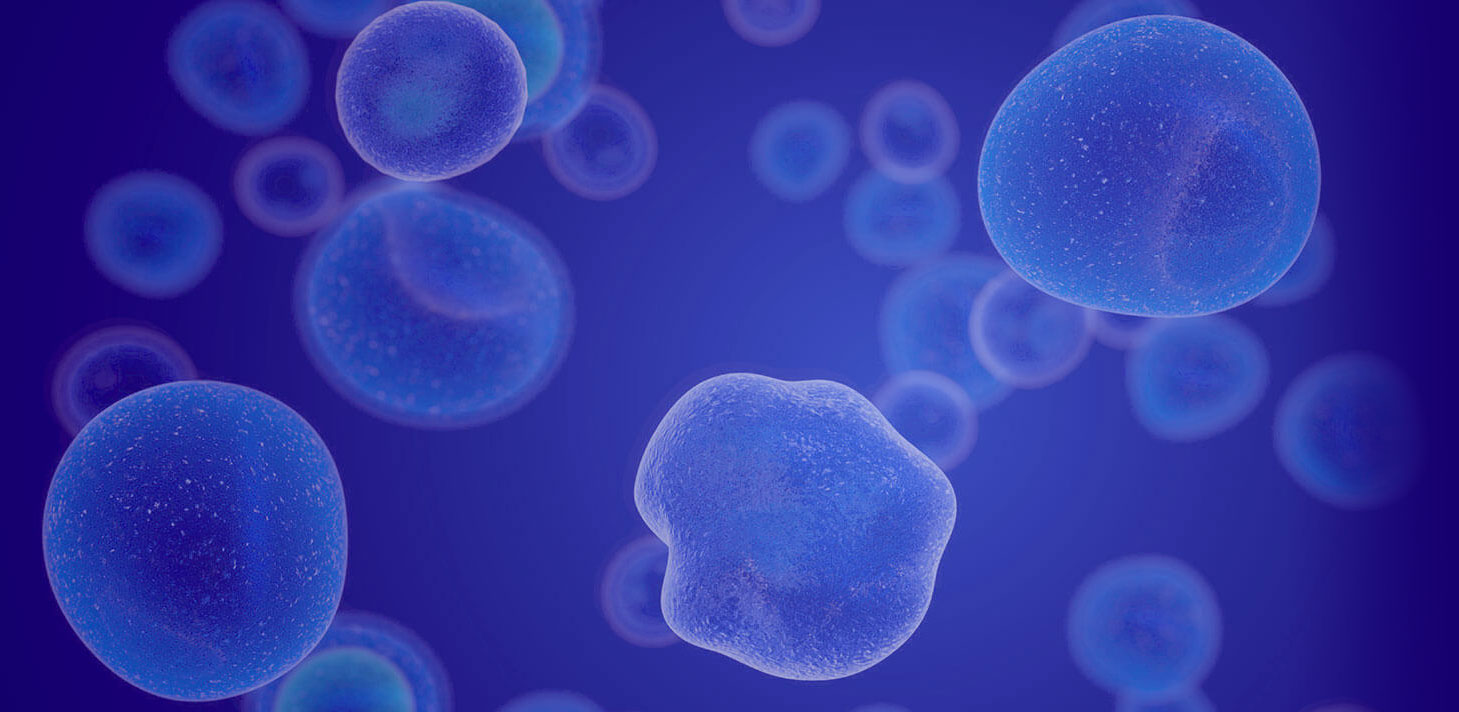Stem Cells for Muscle Spasms
Conveniently located to serve the areas of Greenville, SC, Spartanburg, SC, Columbia, SC, Anderson, SC and Asheville, NC

The use of stem cells is an innovative treatment method that is currently being explored for the treatment of various ailments, including the discomfort and complications associated with muscle spasms.
Muscle spasms can be caused by a variety of factors, including injuries, muscle fatigue, or underlying neuromuscular disorders. They occur when muscles involuntarily contract, leading to sudden movements that sometimes result in painful cramps. This can affect individuals of all ages and fitness levels. In recent years, stem cell therapy has gained traction for treating these muscular challenges, potentially offering exciting therapeutic applications.
If you are looking to manage your muscle spasm symptoms, reduce inflammation, and ultimately improve daily comfort, you may want to explore the benefits of stem cell therapy. Dr. John C. Haasis III and the team at The Daisy Institute are one of the Carolinas’ leading stem cell and regenerative experts. They have helped countless patients address a wide variety of concerns through their innovative treatment techniques.
If you are interested in taking a different approach to treating your muscle spasms, contact The Daisy Institute online or give us a call at (864) 775-5682 to schedule a personal consultation at one of our five locations spread across North and South Carolina:
- Greenville, SC
- Spartanburg, SC
- Columbia, SC
- Anderson, SC
- Asheville, NC
Contents
- 1 About Stem Cells for Muscle Spasms
- 2 Benefits
- 3 Ideal Candidates
- 4 Personal Consultation
- 5 Preparation
- 6 Procedure
- 7 Recovery
- 8 Results
- 9 Cost of Stem Cell for Muscle Spasm Treatments in the Carolinas
- 10 FAQ
- 10.1 How long do the effects of stem cell therapy last?
- 10.2 Are there any risks associated with using stem cells to treat muscle spasms?
- 10.3 Can anyone receive stem cell therapy for muscle spasms?
- 10.4 What happens if I do not see improvement in my muscle spasms?
- 10.5 Is stem cell therapy suitable for sports injuries?
- 11 References
About Stem Cells for Muscle Spasms
The human body is equipped with various specialized cells that perform unique functions. Among these are stem cells, which possess the remarkable ability to develop into different types of cells, such as muscle cells or nerve cells. Stem cells exist in various forms, but mesenchymal stem cells, which are derived from adult tissues like bone marrow or fat, are particularly promising for muscle repair. When applied to muscle spasms, stem cell therapy focuses on harnessing the regenerative properties of these cells to stimulate tissue regeneration and facilitate muscle repair. The goal is not only to relieve pain but also to restore normal function.
Types of Stem Cells
There are numerous different types of stem cell therapies, and Dr. Haasis can help you determine which type of treatment could be best for you to achieve your goal of reducing muscle spasms. Some of the common types of stem cell treatments include:
- Mesenchymal Stem Cells: These adult stem cells can differentiate into various cell types, including myoblasts (muscle precursor cells), enabling them to support tissue regeneration. (1)
- Adipose-Derived Stem Cells: Isolated from fatty tissue, these stem cells have shown promise for stimulating healing processes and combating inflammation. (2)
- Bone Marrow-Derived Stem Cells: Extracted from bone marrow, these stem cells have the intrinsic capability to promote healing in damaged muscle fibers. (3)
Benefits
Stem cell therapy has piqued the interest of many researchers due to the plethora of benefits that are often associated with it. Some of the common benefits associated with this treatment include:
- Pain Management: Stem cell therapies potentially reduce pain associated with muscle spasms, which would allow for improved daily functioning.
- Inflammation Reduction: The anti-inflammatory properties of stem cells have shown promise for helping mitigate muscle spasms.
- Tissue Regeneration: Stem cell injections promote the repair of damaged muscle tissues, facilitating faster recovery.
- Enhanced Mobility: Patients often report improved range of motion and mobility due to decreased spasms.
- Non-invasive Option: Compared to surgical interventions, stem cell therapy represents a less invasive treatment modality.
- Minimal Scarring: Since the procedure involves injection rather than large incisions, patients experience little to no scarring.
- Long-lasting Results: Favorable patient outcomes can extend beyond the immediate effects, providing long-term relief and quality of life improvements.
- Personalized Treatment: Stem cell therapy can be tailored to each patient’s specific needs based on their condition and level of discomfort.
Ideal Candidates
Stem cell therapy can appeal to many different types of people; whether or not you are an ideal candidate for stem cell therapy will be determined during your personal consultation. Stem cell treatment might appeal to individuals suffering from chronic muscle spasms due to injuries or neuromuscular disorders, and/or patients seeking alternative treatments after unsuccessful attempts with traditional pain management methods. Ideal candidates are those in good overall health without contraindications to injectable therapy.
Personal Consultation
Your journey toward lasting relief from muscle spasms will begin with a one-on-one consultation with Dr. Haasis or a member of his team. During this initial visit, he will take the time to review your medical history, discuss the nature of your muscle spasms, and understand your personal goals for treatment. Dr. Haasis will also perform a focused physical examination to assess the severity of your condition and identify the best approach based on your specific needs.
This personalized evaluation will allow Dr. Haasis to design a custom treatment plan that aligns with your health goals and maximizes the therapeutic potential of stem cell therapy. He will also answer any questions you have about the procedure and provide clear, straightforward information to help you feel fully prepared and confident in your next steps.
To get started on your journey toward treating your muscle spasms, contact us online or give us a call at (864) 775-5682 to schedule a personal consultation at one of our five conveniently located practices.
Preparation
Dr. Haasis will guide you through every step of preparation to ensure your treatment is safe, targeted, and effective. Before the procedure, he may order diagnostic tests, such as imaging or bloodwork, to further explore the root causes of your muscle spasms. He will also go over your current medications and supplements to advise you on any adjustments that may be needed before treatment. Depending on your lifestyle and medical history, Dr. Haasis may also recommend temporary changes such as modified activity levels or nutritional guidance to help optimize your body for healing. These preparation steps will help set the stage for a smooth experience and successful results.
Procedure
The specifics of your stem cell regimen will depend on the details outlined in your personalized treatment plan. The procedure usually begins with the administration of a local anesthetic to reduce your discomfort during and after treatment. Dr. Haasis will then inject stem cells directly into the muscle that is experiencing spasms. A series of injections may be required to provide the targeted muscle with ample relief.
Recovery
After the procedure, you can expect a relatively short recovery period with minimal disruption to your daily life. Some mild soreness or swelling may occur near the injection site, but this should fade within a few days. Dr. Haasis will likely encourage you to rest during the initial recovery phase, allowing the stem cells to begin their regenerative work. While you may resume light activities within a short period, you should avoid heavy lifting or intense exercise for several weeks to protect the treated area and support healing. Follow-up visits will be scheduled so Dr. Haasis can evaluate your progress and adjust your treatment plan if necessary.
Results

As time goes on, the regenerative properties of the treatment can potentially help reduce the frequency and severity of spasms, improve muscular function, and lessen the need for ongoing medication or pain management. Although individual results will vary, stem cell therapy offers a promising supplement to traditional treatments for those seeking lasting, non-surgical solutions for chronic muscle pain.
Cost of Stem Cell for Muscle Spasm Treatments in the Carolinas
The cost of stem cell therapy varies based on several factors, including the specific technique employed, the number of sessions required, and whether additional therapies are included. Dr. Haasis and his team care about transparent pricing and will give you a detailed estimate of the total cost of your treatment during your personal consultation.
Contact us online or give us a call at (864) 775-5682 to schedule a personal consultation and begin treating your muscle spasms.
FAQ
How long do the effects of stem cell therapy last?
Typically, patients experience long-lasting relief, but individual outcomes may vary based on personal health, adherence to recovery protocols, and more.
Are there any risks associated with using stem cells to treat muscle spasms?
Possible side effects may include temporary swelling, bruising, or mild discomfort at injection sites. Serious complications are rare but can occur. Dr. Haasis will explain each risk to you during your consultation.
Can anyone receive stem cell therapy for muscle spasms?
Not everyone may qualify. A thorough evaluation during your consultation will establish candidacy.
What happens if I do not see improvement in my muscle spasms?
Dr. Haasis will monitor your progress closely, and if needed, adjustments to treatment plans will be discussed.
Is stem cell therapy suitable for sports injuries?
Yes, many athletes utilize stem cell therapy for sports-related muscle spasms and injuries to expedite healing.
References
- Ding DC, Shyu WC, Lin SZ. Mesenchymal Stem Cells. Cell Transplantation. 2011;20(1):5-14. doi:https://doi.org/10.3727/096368910x
- Tsuji W. Adipose-derived stem cells: Implications in tissue regeneration. World Journal of Stem Cells. 2014;6(3):312. doi:https://doi.org/10.4252/wjsc.v6.i3.312
- Astori G, Soncin S, Cicero VL, et al. Bone marrow derived stem cells in regenerative medicine as Advanced Therapy Medicinal Products. American Journal of Translational Research. 2010;2(3):285. https://pmc.ncbi.nlm.nih.gov/articles/PMC2892405/


